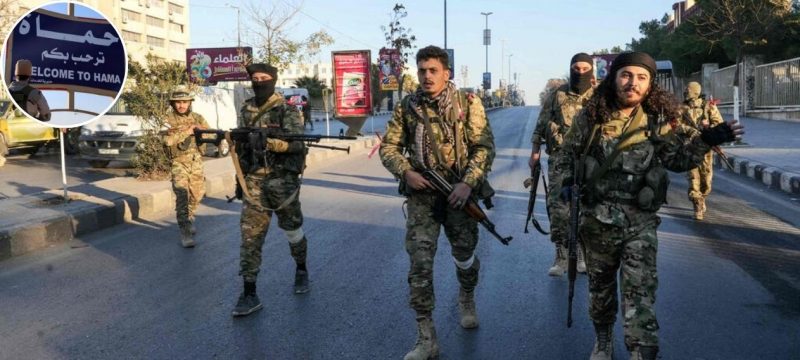Syrian rebels seized control of the city of Hama on Thursday, marking a significant victory in their rapid advance across northern Syria. This marks a major setback for President Bashar al-Assad and his allies, Russia and Iran, after years of stagnant frontlines. The rebels’ swift advance, one of the fastest since the civil war began 13 years ago, also gives them control of a strategically important city that had eluded them in the past.
The Syrian army announced it was repositioning outside Hama to avoid urban combat and protect civilians following intense clashes. Rebels paraded through the city, celebrating their success with gunfire, and expressed their intentions to march southward towards Homs, a key city that links Damascus to the north and the coast.
Read more: Aleppo falls out of Syrian Government Control
The capture of Hama sends a strong message to Damascus, signaling the potential for further rebel advances. The fall of Hama is a stark sign of the shifting balance of power, particularly after Hezbollah’s significant losses in its recent conflict with Israel. The rebellion’s success is also linked to Russia’s focus on the war in Ukraine and the heavy losses suffered by Hezbollah, a key ally of Assad.
The main insurgent leader, Abu Mohammed al-Golani, declared Hama fully under rebel control and issued a warning against the involvement of Iraq’s Hashd al-Shaabi paramilitary group, which had sent fighters to support Assad. Golani urged Iraq to avoid becoming involved in Syria’s conflict.
Hama’s strategic position, roughly a third of the way from Aleppo to Damascus, complicates Assad’s ability to launch a counteroffensive. A rebel push towards Homs could further isolate Damascus from the coastal region, where Assad’s Alawite sect and Russian forces have strongholds.
The fall of Hama also impacts towns with significant minority religious populations, including Muhrada, home to many Christians, and Salamiya, which has a large Ismaili Muslim community. Hama has been a center of opposition to Assad’s family since the 1982 revolt by the Muslim Brotherhood, when the regime brutally suppressed the uprising, killing thousands.
Golani, leader of Hayat Tahrir al-Sham (HTS), the most powerful rebel faction, pledged to protect religious minorities in Syria and urged them to abandon Assad, though many remain wary of the insurgents. Golani emphasized his break from Al Qaeda and the Islamic State, presenting a more moderate image to gain international support.
The rebels are consolidating control over Aleppo, which they captured last week, and are working to bring it under the administration of their own Salvation Government. However, Aleppo is facing shortages of bread and fuel, with many residents displaced by the fighting.
The UN has called for urgent humanitarian aid for civilians affected by the conflict, while Turkey’s role remains crucial. Despite distancing itself from HTS, Turkey has been a significant backer of other rebel factions, and any lasting insurgent gains in northern Syria could help facilitate the return of Syrian refugees to the country.









